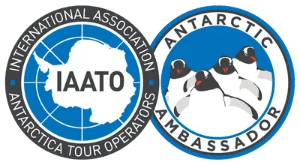Science to help steer policy for marine protected areas in Antarctica
Five years ago, at a conference in Barcelona, the seed was planted for an expedition to explore the number of species types in the West Antarctic Peninsula operating from our research vessel ‘R/V Australis’.
Led by Bruno Danis at the Université Libre de Bruxelles, the Belgica121 expedition consisted of nine scientists with ambitious targets. But the trip in 2018 was deemed a success with 22 sampling days, 226 gear deployments, 1,739 samples and 38 scuba dives over 15 different sample stations.
Ben Wallis, Owner and Skipper, Ocean Expeditions said: “It was fantastic to have such a passionate, dedicated group onboard and to introduce a more sustainable way of conducting Polar research.
Large ice breakers cannot spend long periods studying the shallow waters in the region, which is why major knowledge gaps exist and as a result, limited samples. At one point during the expedition, the team were working at 400 metres below sea level collecting water samples for eDNA.
Belgica121 created an ecological census baseline in order to better understand one of the fastest warming regions in the world, the Antarctic Peninsula. Each day, nine or more projects were being run onboard simultaneously,” he said.
Six weeks back in Belgium, and Belgica121 launched their cruise report detailing their initial findings about intertidal zones, soft sediments, macro benthos and mega benthos organisms, and wildlife including fish, birds and marine mammals.
Mr Danis said: “It is our hope that Belgica121 will pave the way to more environmentally-consistent research in the Southern Ocean and will highlight the importance of committed field work in terms of filling knowledge gaps and in applications to conservation issues.”
Having worked for more than 20 years in this region, Ocean Expeditions is a big supporter of science and research expeditions. The findings enable us to learn more about our beautiful marine life and seascape, and how we can help to protect them from climate change and increasing water temperatures.
Click here to find out more about this research expedition or contact us for upcoming trips and destinations.

